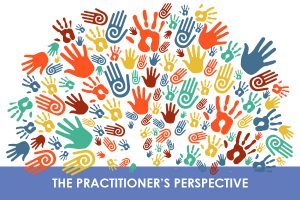Exploring Equity Issues - Blog

The Students Came to Survive
By Beth Hood, LCSW-C
ESOL Intervention Specialist
 Virtuosity so seldom makes headlines. Which makes it tough for an unaccompanied minor to catch a break, especially if he’s male. He’s often portrayed most as a predator for MS-13; lurking about our communities with intent to pillage, rape, and murder. This narrative prods us to feel justified in viewing immigration as a menace to our nation, sullying our purity, threatening our safety.
Virtuosity so seldom makes headlines. Which makes it tough for an unaccompanied minor to catch a break, especially if he’s male. He’s often portrayed most as a predator for MS-13; lurking about our communities with intent to pillage, rape, and murder. This narrative prods us to feel justified in viewing immigration as a menace to our nation, sullying our purity, threatening our safety.
I work in a high school with over 800 immigrant students, the majority of whom are from Central America. Last year, we received over 400 newcomer students. We have over 200 unaccompanied minors, almost exclusively from El Salvador, Guatemala and Honduras. These countries are home to un-declared civil wars between corrupt politicians, narco-traffickers, gangs, and citizens. Colonialism and violence have ruled for decades and centuries.
And this is where our students started life as unassuming children. Especially for our boys, their emerging adolescence meant they were to prepare to enter the war – kill or be killed. Extort or be extorted. So they left. These students were sponsored by relatives who themselves understand survival, and were willing to work day and night to help their brothers and sisters, their nephews and nieces, their cousins and neighbors. With and without visas, the students came to survive. They are refugees.
At our school, we have our issues, of course. We have some gang involved youth. We have some drug dealers. We’re not perfect. We’ve been in the news a few times for stories related to individuals who preyed on our community – a parent who was killed by her husband in front of the school; a student who was lured into the woods one weekend and killed by a MS-13 member, a former student who was an unaccompanied minor. Who came traumatized by war, and unable to extricate himself from the gang, though he tried.
But despite these horrific tragedies, we are exceptional in that we are peaceful. We don’t have group fights. We don’t have headline-grabbing stories of mayhem. We have students and parents who report to us when there is intimidation or threat, and staff who respond when aware of concern. We are most gratefully, not typically in the news. But our students do deserve some notice.
Last fall, we gave an anonymous survey to 177 recently arrived students, 97% of whom come from Central America and 65% are male. Eight-five percent have a positive relationship with the adult they live with; 70% said they or their family members experienced threats to their safety back home. Only 10% are fearful of gangs now that they are in the United States. Eighty-two percent have the goal of graduating from high school.
This June, 98 of our students who came in 2014, are graduating. Many of them have received asylum and residency status based on their histories of kidnapping, threat, and murder of family members. During these years, they have also been working to pay their legal debts, and to send money to family back home. We may not be aware, but they are washing our dishes, serving our food, packing our strawberries, cleaning our offices, and tending our gardens.
With trusted staff, they have told their stories that are so thinly held below the surface. Multiple times we have had students fall into a heap of tears upon learning that a family member had been murdered. One student’s mother was imprisoned and endured a 16-month odyssey through our legal system, after being told by a gang member to pick up a package at FedEx or be to expect her mother’s murder in Guatemala. Fearful of going to the police, she picked up the package, and was promptly arrested. The package was filled with cocaine. Presented with all the details, the jury found her innocent, and her son continues in school. He wants to be a lawyer.
The most common complaint and visible evidence of trauma among these students is insomnia. We see dark circles under their eyes, either from working into the morning hours, or from inability to sleep after waking from nightmares. They worry about their family back home. They worry about whether or not they will be deported. They worry about paying their legal bills. They worry about their grades, about the friendship that is waning, about the girl they want to kiss. They are humble, with simple yet noble aspirations. “I want to graduate, Miss. I want to help my family.” These are the unaccompanied minors we know. It is a pleasure and a privilege to introduce them to you.
To read more about how you can provide a safe and supportive environment for immigrants and unaccompanied minors, please refer to the strategies and resources this author provides in the Equity Brief, Bio-Social-Emotional Needs of Immigrant Students, with a Focus on Central Americans.
